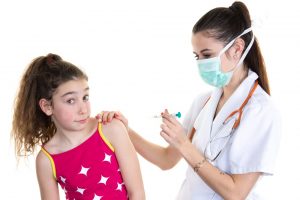Pediatric HPV Vaccine – LPN Tips

Pediatric LPNs play a crucial role in ensuring that pediatric patients receive necessary vaccines. Understanding vaccine schedules and administration is vital for LPNs in this field. Many parents lack knowledge about the potential side effects of either avoiding or refusing vaccines. The Gardasil HPV vaccine is designed to provide protection against various strains of the Human Papillomavirus (HPV), which is prevalent and can lead to severe health issues.
HPV infection is estimated to affect 75% to 80% of males and females during their lifetime. Certain types of HPV can result in significant consequences, including cervical, vaginal, and vulvar cancers in females, as well as genital warts and anal cancer in both males and females.

Struggling to meet your deadline?
Get your assignment on Pediatric HPV Vaccine – LPN Tips done by certified MDs and PhDs in the USA. ORDER NOW!
Aesthetic Nurse Practitioner: Job Description, Salary, and How to Become One
Vaccination against HPV can commence as early as age 9, aiming to be administered before any adolescent experimentation involving genital contact with an individual carrying HPV (intercourse not necessary). The Centers for Disease Control and Prevention (CDC) recommends routine vaccination with Gardasil for all patients aged 11 or 12. The Gardasil vaccine is administered in a three-part series, with the second dose two months after the first and the third and final dose four months after that. The entire vaccination process should be completed within a six-month time-frame.
Despite the medical benefits, many parents express concerns about the HPV vaccine potentially encouraging early sexual activity in their children. Proper education is crucial, emphasizing that Gardasil serves as a preventive measure, not a contraceptive. LPNs should provide clear guidance on abstinence to all adolescent patients.
Parents often worry about the safety of the HPV vaccine for their children. Common side effects include pain, swelling, itching, bruising, and redness at the injection site, along with headache, fever, nausea, dizziness, vomiting, and fainting. Fainting is a possible occurrence after receiving the HPV vaccine, and precautions, such as having the child sit or lie down for 15 minutes post-vaccination, should be taken to prevent injuries. In some cases, fainting may lead to shaking or stiffness, requiring evaluation or treatment by the child’s healthcare professional.
Addressing sensitive subjects is a routine task for LPNs. Approaching these discussions with a firm, calm, and caring demeanor is essential. Providing informational handouts and pamphlets post-education ensures that parents have additional resources for review. Recognizing that not all parents are ready to accept their child’s transition into adolescence, LPNs have a duty to ensure that both patients and parents are well-informed.

Dont wait until the last minute.
Provide your requirements and let our native nursing writers deliver your assignments ASAP.
